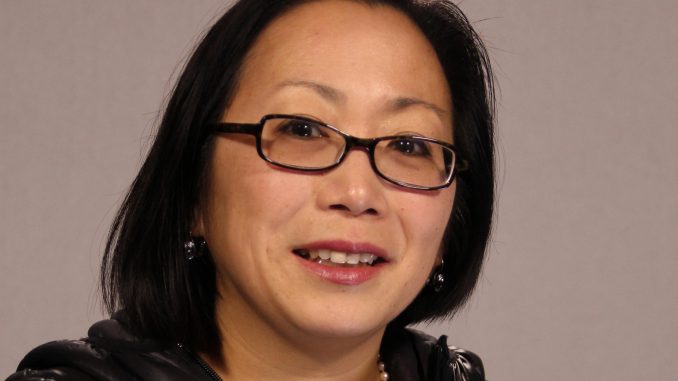
Paige Welch, Staff Writer |
On Thursday, April 6, the Alden Scholar Series featured SUNY Oneonta’s own Dr. Sallie Han, who gave a lecture about her current anthropological study of clutter. The Alden Room in Milne Library was full of people of all ages and academic backgrounds, showing that her work appeals and applies to a wide scope of people. Dr. Han’s presentation title was “Rethinking Clutter: An anthropological take on the stuff that’s hard to let go.” Although, she did let the audience members know that it was not going to be a talk about how to declutter our lives, but rather be an encouragement to explore our relationship with stuff, hoping that we might understand it better.
First, she asked the audience questions about how clutter makes them feel. Most people mentioned that clutter stresses them out because it seems like it’s impossible to get rid of. There have been several studies published on the psychological and physical effects of clutter, all showing that an excess of stuff has the ability to mentally drain us and make us feel trapped in our own environments. Dr. Han offered an explanation for this.
She mentioned that there are two reasons for clutter. For one, there is “too much stuff” available to purchase. Secondly, there is too much money to spend on these products. 1.2 trillion dollars is spent annually on goods and services that are not absolutely necessary in the U.S. She calls clutter “liminal matter,” referencing the fact that it is not “actively wanted or rejected” and that it gathers in those spaces “we’ll get to later.” During changes or transitions, things gather and represent the messiness of our lives, and that clutter “is stuck.”
The reason why it seems hard to get rid of stuff can be traced back to people’s cultural roots. Many past civilizations have viewed objects as living things with their own souls. Baskets that were made by weaving together natural plant materials were viewed as holding life. Today, there is still an emotional attachment to objects. In response to this, Dr. Han talked about how humans are not entirely made up of biological matter. We exist among constitutive relationships; we are made up of “the accumulation of places, things, and other people.” She used an example of seeing “empty” baby clothes. We see the fabric and are amazed that something is small enough to fit inside. But once a baby fills them, there is a new life and dimension to those pieces of fabric. It becomes an extension of the child.
As things accumulate throughout life, as growing is a constant transition, the end of our lifelines bring about a question: who’s going to take care of all this stuff after the owner dies? When parents die, it is the responsibility of the next generation to inherit and take care of their things. Dr. Han says that “emptying the house is a right of passage” as there is a need to continue the stuff’s cycling through life.
She ended her fascinating lecture with an encouraging comment, saying that we shouldn’t be too hard on ourselves when we lament about how difficult it is to get rid of clutter.
After all, “Things matter: they make us who we are,” said Dr. Han. “[It’s] not just a metaphor: they do have a life of their own.”
Leave a Reply